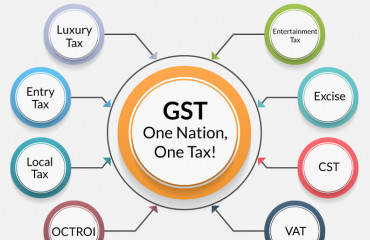
The Supreme Court’s verdict on the powers of the Goods and Services Tax Council is a landmark. It correctly interprets the 101st Constitutional amendment, which ushered in the era of a nationwide GST, as not explicitly prohibiting states from legislating on those very taxes.
The Supreme Court's verdict on the powers of the Goods and Services Tax Council is a landmark. It correctly interprets the 101st Constitutional amendment, which ushered in the era of a nationwide GST, as not explicitly prohibiting states from legislating on those very taxes. Specifically, the amended clause (a) of Article 279 does not override other Constitutional provisions, such as article 246, that empower states to legislate taxes. The GST Council, the apex court said, has persuasive powers, not coercive ones. The verdict is a reminder, if any was needed, that cooperative federalism calls for more and frequent dialogue at the highest level of the Inter-State Council, and not merely at the GST Council level. The Council is still an inadequate mechanism to balance sensitivities over the taxation rights of the Centre and states. But there are also various other issues involving federalism that can turn into fault lines. For instance, the exercise of constituency delimitation and a proposed increase in parliamentary seats in the light of India's changing demographic profile both call for urgent attention. Another issue is the need to put a legislative cap on the Union government's tendency to resort to using cess revenues that are kept outside the divisible pool of taxes. A third issue could be of the expanding use of central agencies in police matters, often leading to jurisdictional overlaps, and worse, contradictions. A fourth smaller but equally urgent issue is whether the Centre will extend the compensation formula for states to fill gaps in GST revenues. The states were assured a generous formula guaranteeing 14% revenue growth so as to get them all to sign-up for the new tax regime, but that assurance runs out in June 2022. What next, especially with signs of a slowing economy? Of course, the original formula was too generous to begin with and states bore little risk. The revised formula should phase out compensation from 100 to zero in, say, three or four years. Cooperative federalism, thus, is still a work-in-progress. Dialogue and trust building are imperative.
For its part, the GST regime still has many reforms to undertake, like a reduction in its multiple rate slabs and the inclusion of petro products. As state legislatures and experts ponder the implication of the judgement, another important reform is hanging fire. To address mounting disputes under the GST system, India needs to institute a GST appellate tribunal (GSTAT). To date, it has not been constituted, even as litigation cases mount, thanks to ambiguous legal provisions. In the absence of a dedicated tribunal, assessees have to approach high courts, which adds to their burden. The Supreme Court had ordered the government in September to set it up, but it has not been done.
The GSTAT should be set up as a new tribunal rather than subsume it under the existing Customs Excise and Service Tax Appellate Tribunal. It should act as a common forum for both central and state GST Acts, and hence the GSTAT will need to ensure uniformity in interpretation and redressal of disputes.
One way to achieve uniformity would be to let GSTAT appeals go directly to the Supreme Court for specific cases involving issues like the place of supply, product/service classification and valuation. Otherwise, the process will get mired in unnecessary delays and potential contradictions.
The GSTAT also presents an opportunity to build a completely online dispute resolution mechanism that is state-of-the-art, backed by a sound legal framework, and equipped with well-drafted rules and regulations. For instance, the entire life cycle of a case, from filing to disposal, should go digital, aided by a case management system that prioritizes listing and hearings. This can be done in the virtual mode too. The GSTAT should build on the GST Network, which is already processing a large volume of data and has workflows in place for both taxpayers and the back-end. That digital trail should extend to the dispute resolution forum. The GST Network has developed a software being used by first appellate authorities across the country. Anyone making an appeal, whether taxpayer or the department, should be required to file it digitally with reference to GST Network records. The GSTAT should use the log-in credentials of parties and also receive documents online. This will greatly reduce the hassle of producing records and evidence, the time spent on a case, and uncertainty.
As the GSTAT gets constituted and a fully-electronic dispute resolution framework gets going, it can be supplemented by a one-time alternative dispute resolution (ADR) mechanism to allow taxpayers a possible exit, i.e. after the filing of an appeal but before its disposal by the GSTAT. As such, the tribunal's success will critically depend on its staffing and the talent pool it draws upon. It can become a benchmark and be truly transformative. A citizens' led initiative called GSTAT Coalition India, convened by leading think-tank Daksh, has prepared a detailed document describing the features outlined above.




